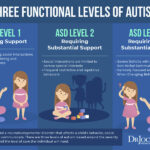Many families feel lost when someone they love starts treatment for addiction or mental health issues. I understand how hard it can be to watch someone struggle and not know what to do.
Over time, I have seen that family support really helps a person recover. In this post, you will find simple steps to become a strong support system and learn facts about recovery journeys.
Stay with me to discover ways your care can make a real difference.
Key Takeaways
- Family support helps people stay in treatment and avoid relapse. Studies show supportive families increase recovery success.
- Open talks about addiction or mental health lower shame and build trust. Active listening and kind words make loved ones feel safe to share.
- Setting clear boundaries at home creates a calm, stable place for healing. Less stress and conflict means better progress in recovery.
- Learning the stages of change helps families know what their loved one needs. Understanding triggers and having a plan prevents relapse.
- Families should care for themselves too. Therapy or support groups help manage stress so they can give stronger support during treatment.
Understanding the Family’s Role in Recovery
Family involvement often shapes the recovery journey. My support can build trust and improve treatment outcomes for a loved one. “A strong support system makes all things possible.” Family members help lower stress, increase hope, and give stability during hard times.
Positive family dynamics help keep open communication and encourage progress in therapy or addiction recovery.
Studies show people with supportive families are more likely to stay in treatment and avoid relapse. Open talks about mental health or substance use disorder break down shame and lead to healthier coping strategies.
Participating in a family program can provide the tools and resources needed to strengthen relationships during the recovery process.
I play a big part by listening, showing care, and working as part of the care team. Active participation helps set goals and keeps everyone focused on moving forward together.
Ways Families Can Provide Emotional Support
I share kind words and offer my support, no matter how tough things feel. I listen with care, which helps build trust and makes my loved one feel safe to open up.
Offering unconditional encouragement
Unconditional encouragement matters a lot in recovery. I always try to show my support, no matter what happens. This means being there during tough times and good ones too. A simple “I believe in you” can boost someone’s spirit.
It gives hope when things feel heavy.
Staying positive helps create trust in our relationship. Listening without judging makes it easier for the other person to open up. Encouragement fosters growth and change, which is key on any treatment journey.
Moving forward takes effort, but with strong support, it becomes more manageable. Now let’s explore how practicing active listening can deepen this supportive role in recovery journeys.
Practicing active listening
Active listening is key in helping loved ones on their recovery journey. It means truly hearing what someone says. I focus on their words without thinking about my response right away. This shows them I care and value their feelings.
I often nod, make eye contact, and repeat back what they say to show understanding. Creating a safe space for open talk helps build trust. Families can turn tough conversations into moments of connection by practicing active listening together.
Creating a Supportive Environment
Creating a supportive environment is key for anyone on their recovery journey. It helps to lower stress and keep the peace at home, which makes everything easier. We want our loved ones to feel safe and cared for, so setting clear boundaries can really help!
Reducing stress and conflict
Stress and conflict can make recovery harder. I focus on creating a calm home. That means staying away from arguments. Keeping things quiet helps everyone feel safe. I also try to talk openly with my family. Clear communication reduces misunderstandings. Talking about feelings can lower tension too. By working together, we support each other better in this treatment journey.
Establishing healthy boundaries
Healthy boundaries are crucial for all involved in recovery. They help create a safe space. I find it essential to know what behaviors and actions are acceptable. For instance, speaking openly about feelings can improve communication. Setting limits on what I will or won’t accept fosters trust.
I also aim to respect the other person’s space and needs during their treatment journey. This means avoiding pushing them too hard or enabling harmful habits. By keeping my expectations clear, I support their growth while maintaining my peace of mind.
Boundaries protect us both; they provide strength, stability, and hope for lasting recovery outcomes.
Educating Families About the Recovery Process
I think it’s key for families to learn about the recovery process. Understanding each step can help them support their loved ones better and make the journey easier.
Learning about the stages of change
Understanding the stages of change can help families support their loved ones. There are five main stages: precontemplation, contemplation, preparation, action, and maintenance. Each stage shows where a person is in their recovery journey.
In the precontemplation phase, a person may not even realize there’s a problem. They might resist any talk about change. During contemplation, they begin to think about making changes but haven’t decided yet.
In preparation, they start planning for action but need encouragement from family members. Action is when they take steps to change behaviors. Finally, maintenance involves keeping up with those changes and avoiding relapse risks.
Knowing these stages helps me understand what my loved one needs at different times in their recovery process.
Understanding relapse prevention strategies
Relapse prevention strategies help keep people on track in their recovery journey. I learned that the key is understanding triggers, those things that can make someone want to use substances again.
For example, stress from work or problems at home can trigger a strong urge to relapse.
I also found out that having a plan can be very useful. It helps to know what steps to take if cravings hit hard. This could include calling a friend or attending a support group meeting.
Staying connected with others who understand makes it easier to stay focused on recovery goals and build a solid support system along the way.
Prioritizing Self-Care for Family Members
Taking care of yourself is key when supporting a loved one in recovery. It’s easy to feel overwhelmed, so finding ways to manage your own stress is vital. Seeking therapy or joining a support group can really help you cope better.
Managing emotional stress
Emotional stress can feel heavy. I often find myself feeling anxious or overwhelmed when a family member is in treatment. Stress affects my mood and actions, too. A supportive role means managing my feelings well. It helps me to stay calm for them.
I focus on healthy habits to ease that stress. Simple things like deep breathing or going for a walk help clear my mind. I also talk with friends or join support groups; sharing feelings lightens the load.
Staying aware of my emotional health keeps me strong as I support my loved one through their recovery journey.
Seeking therapy or support groups
Finding therapy or support groups made a big difference for me. I felt lost and overwhelmed at times. Connecting with others facing similar challenges helped me realize I was not alone. Hearing their stories made my struggles feel lighter.
Therapy also gave me tools to cope with stress and emotions better. It let me explore my feelings in a safe space. Support groups offered warmth, understanding, and encouragement from people who truly get it.
This environment created trust, which is so important during any recovery journey. Investing in this kind of support helped my family as well; we learned together how to communicate more openly and honestly about our experiences with addiction and treatment strategies.
Conclusion
Families play a key role in treatment journeys. They offer support that can make a big difference. I see it every day. When families work together, they help create a path to healing.
Open communication and understanding can boost recovery. A loving home makes challenges easier to face. Embracing this journey together brings hope and strength for everyone involved.



